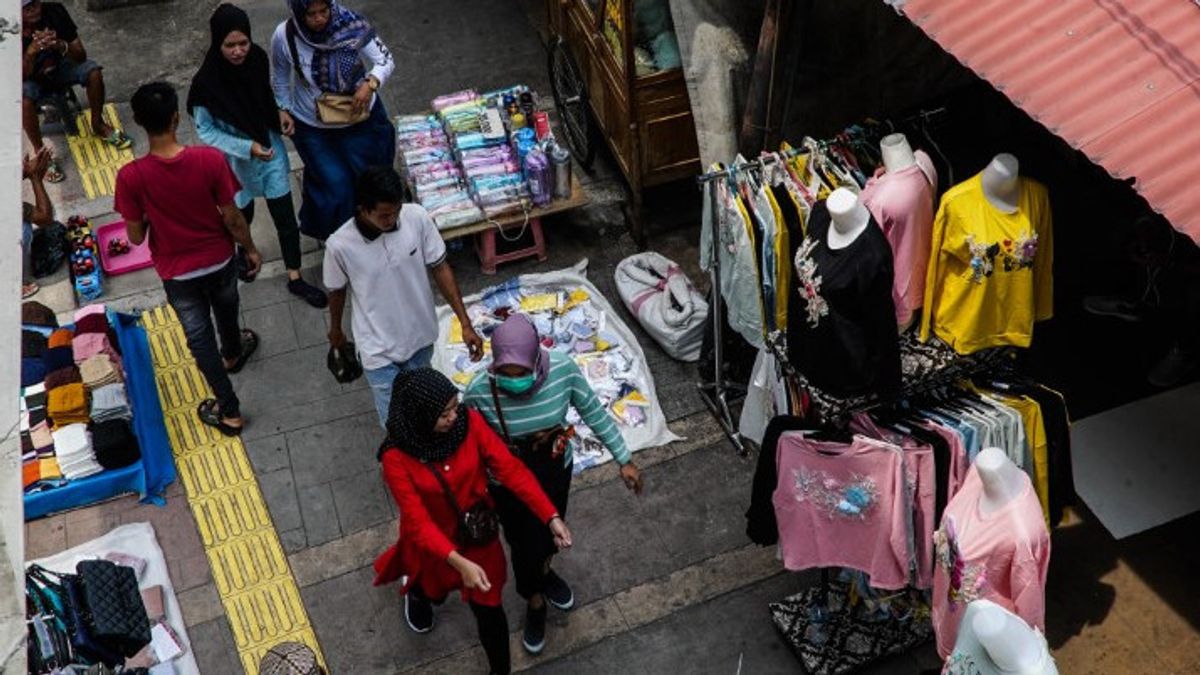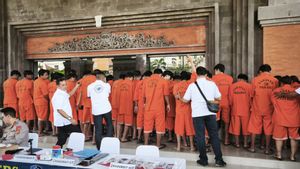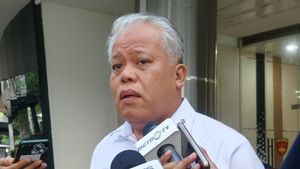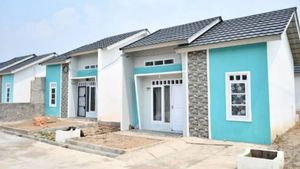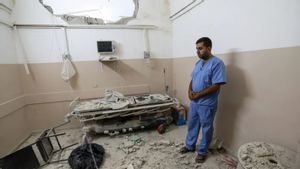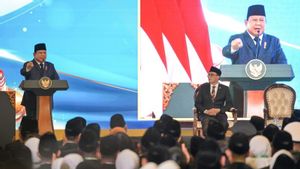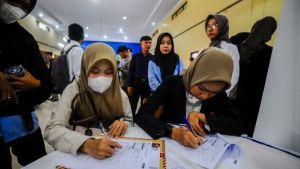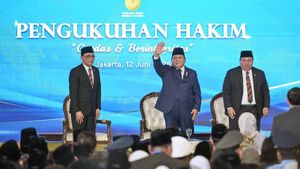JAKARTA - The poverty rate of DKI Jakarta Province has increased over the past year. The poverty rate as of September 2020 was 4.69 percent. This figure increased from September 2019 which was at 3.42 percent.
To reduce the poverty rate that occurred during the COVID-19 pandemic, DKI Jakarta Deputy Governor Ahmad Riza Patria admitted that his party would expand the wheels of the economy, especially for micro, small and medium enterprises (MSMEs).
"Of course, we anticipate the poverty rate to increase by encouraging MSMEs," said Riza at the City Hall of DKI, Central Jakarta, Tuesday, April 20.
For MSMEs, the government has created a micro business actor assistance program (BPUM) in the form of direct cash assistance (BLT). Currently, UMKM players can start registering for the BLT acceptance.
If previously BLT UMKM recipients received assistance of IDR 2.4 million in 2020, now the amount of social assistance has decreased to IDR 1.2 million for each UMKM actor. This policy is contained in the Regulation of the Minister of Cooperatives and SMEs Number 2 of 2021.
There are a number of requirements and criteria for BLT recipients for MSMEs. First, MSMEs are not receiving people's business credit (KUR).
Second, MSME players must meet the requirements, namely to have an electronic KTP. Then, they are not ASN, members of the TNI, Polri, employees of BUMN or BUMD. Third, MSMEs have a maximum working capital of Rp1 billion, excluding land. Buildings for business premises and annual sales results of not more than Rp.
Fourth, MSME players register in an area that is in accordance with the business domicile. Fifth, micro-entrepreneurs complete registration documents by uploading them online. These documents include KTP, KK, business license issued by the competent authority, and a photo of himself carrying out business activities.
The registration system is open from 08.00 WIB to 15.00 WIB. Then, the registration system is closed for data retrieval from 15.00 WIB to 08.00 WIB.
"The government carries out various programs by encouraging socializing, mobilizing, and providing assistance, especially for small communities, for MSMEs, in addition to cash social assistance," explained Riza.
Previously, Anies admitted that the poverty rate had increased during the pandemic. However, he said the number of poor people in Jakarta was the lowest nationally compared to other provinces.
"The number of poor people in DKI Jakarta is the lowest when compared to other provinces in Indonesia," said Anies in his speech on the DKI Jakarta Governor's Accountability Statement (LKPJ) for the 2020 Fiscal Year at the DKI Jakarta DPRD Plenary Meeting.
This number is much lower than the percentage of the total number of poor people nationally which is at 10.19 percent. Anies said the COVID-19 pandemic was the main cause of the increase in the number of poor people in Jakarta.
"The occurrence of the COVID-19 pandemic is a factor in the increase in the number of poor people in the capital," said Anies.
The English, Chinese, Japanese, Arabic, and French versions are automatically generated by the AI. So there may still be inaccuracies in translating, please always see Indonesian as our main language. (system supported by DigitalSiber.id)
